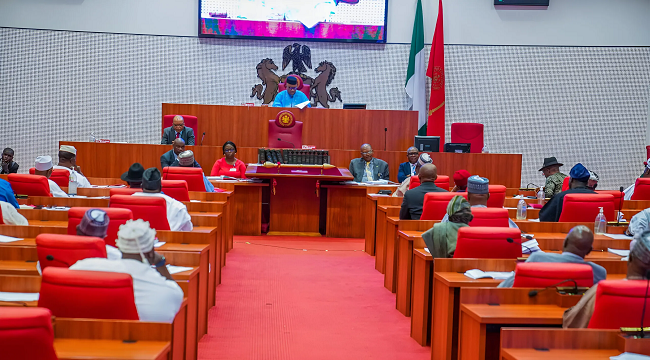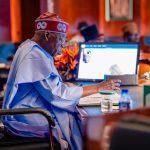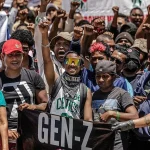The Nigerian Senate has formed an ad hoc committee in response to recent allegations from the United States government and global advocacy groups that Christians in Nigeria are victims of genocide.
The claims have triggered diplomatic concern and public debate, prompting the Senate to act swiftly to clarify Nigeria’s position and set the record straight.
Concerns Over International Misrepresentation
The committee’s formation followed a closed-door session at the Senate on Tuesday, where lawmakers discussed the implications of the U.S. claims. The narrative, if left unchecked, lawmakers warned, could damage Nigeria’s image abroad, strain diplomatic ties, and fuel sectarian tensions at home.
Senate President Godswill Akpabio announced the committee’s establishment, stating that it will present a formal response, grounded in verified facts and objective reporting of events.
Mandate of the Senate Committee
The newly formed committee is tasked with drafting a detailed position paper for both the Senate and the Nigerian Executive. The goal is to present Nigeria’s official stance on the alleged persecution claims and to clarify the nature of insecurity across the country.
The committee will:
- Collect reliable data and testimonies from affected regions
- Engage with security agencies, religious bodies, and civil society
- Coordinate with Nigeria’s foreign affairs officials to correct misinformation
- Interface with international stakeholders, including the U.S. Congress, if necessary
A Broader National Security Context
Lawmakers, including Senator Ali Ndume (Borno South), argued that while Nigeria faces real and ongoing security threats, the causes are diverse and not strictly religious. They pointed to terrorism, banditry, and resource-driven communal violence as broader sources of instability.
Ndume emphasized that framing the violence strictly as “Christian genocide” fails to reflect the complex, multi-layered nature of Nigeria’s security crises, which affect both Christian and Muslim communities.
Why the Senate Is Taking It Seriously
The Senate leadership warned that if the genocide narrative continues unchecked, it could:
- Undermine national unity
- Embolden extremist groups
- Harm Nigeria’s human rights record globally
- Jeopardize ongoing international partnerships in security and development
Senators agreed that Nigeria must take control of its narrative, especially in an era where global perception can influence foreign aid, investment, and political pressure.
Facts Over Rhetoric
The committee will work quickly to collect credible data, including:
- Number of deaths and displacements disaggregated by religion and region
- Accounts from survivors, community leaders, and humanitarian agencies
- Reports from security agencies and the National Human Rights Commission
The final document is expected to serve as a counter-narrative to the claims being circulated internationally and could form the basis for diplomatic briefings or even presentations to foreign legislatures.
Nigeria Reframes the Conversation
The Senate’s formation of this committee signals a shift toward a more proactive stance in international diplomacy and public relations. While acknowledging the seriousness of insecurity in Nigeria, lawmakers insist it is not a case of one religious group targeting another but a broader failure of security systems affecting everyone.
This effort may become a template for how African governments respond to external narratives in an increasingly interconnected media and diplomatic environment.





